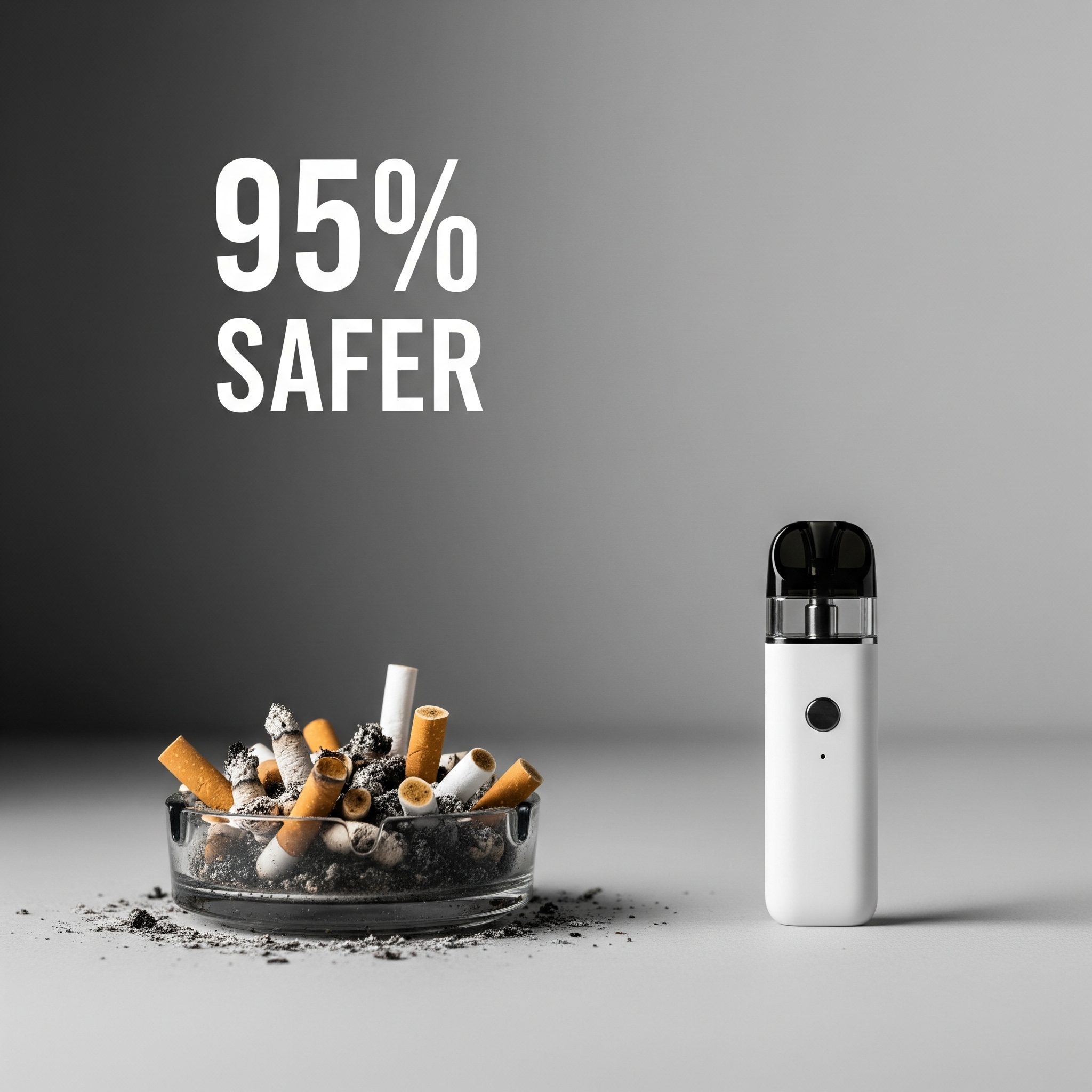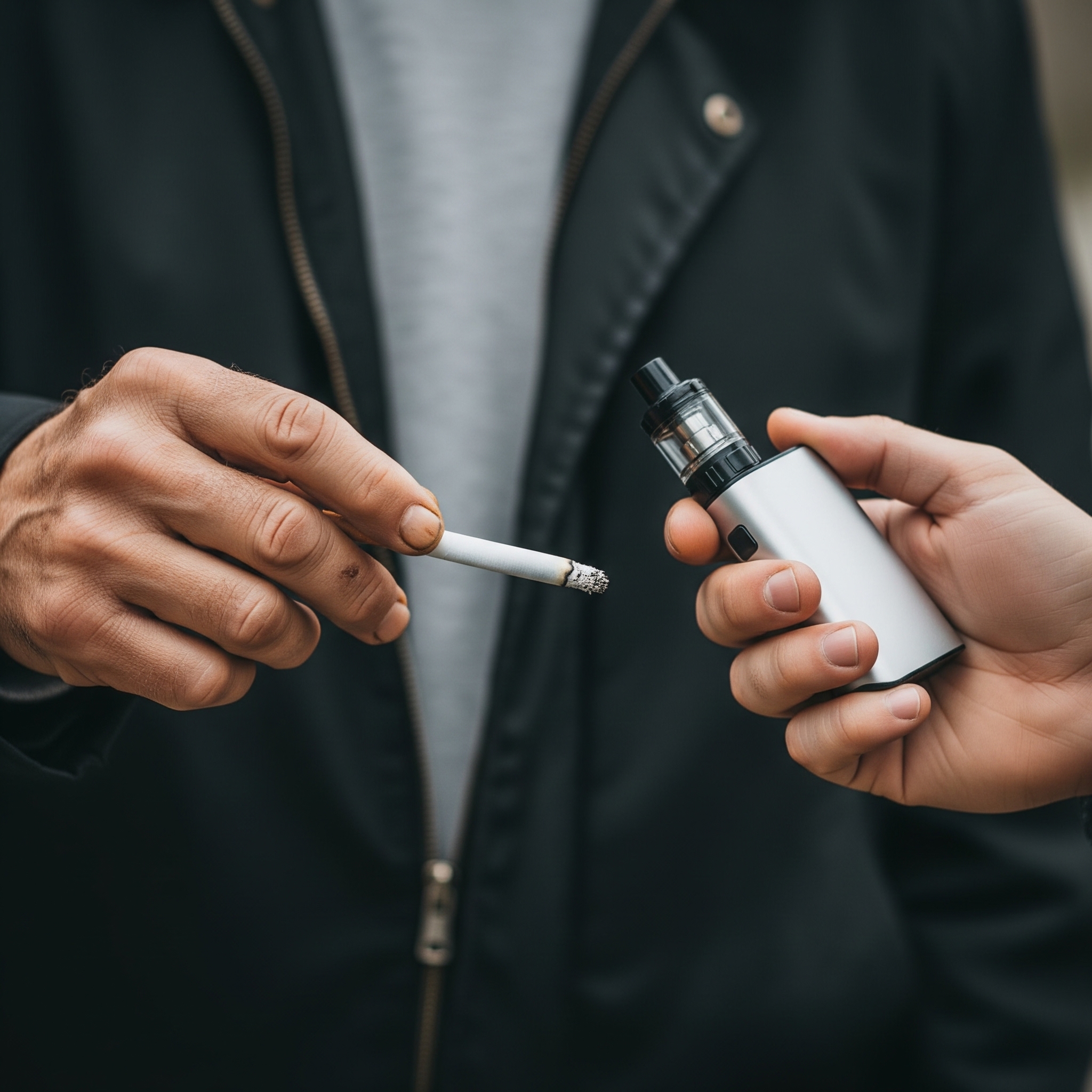Protection from Tobacco. Not from Science.
Every year, over 160,000 Pakistanis die from smoking. A new ban in Punjab doesn't solve this crisis; it makes it worse by eliminating a proven safer alternative. Join our movement for a science-based policy.
Sign the Petition Now
Our Government is Fighting the Wrong Enemy
Pakistan is in the grip of a deadly public health crisis. The culprit is the combustible cigarette, yet a less harmful alternative is banned. This is a policy destined to fail.
160,000+
Deaths Annually
The devastating, documented toll of cigarette smoking in Pakistan (Source).
19.1%
Adult Smokers
Millions of our citizens are trapped in a deadly addiction with few effective ways out (Source).
190 Billion PKR
Tobacco Tax Revenue
The government relies on revenue from the deadliest products while banning safer ones (Source).
A Policy Destined for Failure
History and evidence from around the world show that prohibition does not eliminate demand—it drives it underground and creates new, more dangerous problems.
1. The Inevitable Black Market
A ban creates a vacuum that illegal sellers fill. India's nationwide ban fueled a multi-million dollar illicit trade with no quality control, unknown ingredients, and dangerous substances. The ban doesn't protect citizens; it exposes them to greater risk.
2. Increased Youth Access
Ironically, the ban may make it easier for youth to get vaping products. Legal, licensed shops must check IDs. Black market sellers operate with no rules and no accountability, making our youth more vulnerable, not less.
3. The Economic Fallout
The ban instantly destroyed over 300 small businesses in Punjab, affecting more than 1,000 families and eliminating jobs (Source). Instead of taxing a growing industry, the government pushed all economic activity underground, where it benefits no one but criminals.
4. The Human Cost of Relapse
For thousands who quit smoking by vaping, this ban may be a death sentence. Studies show that when ex-smokers stop vaping, they often relapse to deadly cigarettes. With smoking killing up to half its users, every preventable relapse is a potential life lost.
A Tale of Two Vapes: The Smart Distinction
Not all vaping is the same. A smart policy understands the difference between a medical tool and a recreational hobby. We do NOT support youth vaping or cloud-chasing.
The Solution: Low-Wattage Nicotine Salt Devices
These are small, discreet devices (often called "pod systems") designed to mimic the sensation of a cigarette. They use nicotine salts, which provide a quick, effective nicotine delivery that satisfies cravings for smokers looking to switch. They are not designed to produce large clouds. This technology is the cornerstone of tobacco harm reduction.
This is the medical alternative that must be protected and regulated for adult smokers.
The Problem: High-Wattage "Cloud Chasing" Devices
These are large, powerful devices designed to create massive clouds of vapor. Their flashy nature and "cloud chasing" culture can be appealing to youth. A smart regulatory framework could place stricter controls or higher taxes on these specific devices, rather than a blanket ban on all products.
Banning the effective quitting tool because of the hobbyist device is like banning all medicine because some people abuse it.
Facts Over Fear: The Science of Harm Reduction
Key Scientific Findings:
-
95% Less Harmful
Public Health England and the UK's NHS state vaping is substantially less harmful than smoking.
-
More Effective for Quitting
Cochrane Reviews, the gold standard in evidence, found e-cigarettes more effective than patches or gum.
-
No Tar or Carbon Monoxide
Vaping aerosol does not contain the tar or high levels of carbon monoxide that cause smoking-related diseases.
The Hypocrisy of the Ban
The government acknowledges cigarettes kill 160,000+ people a year and relies on the Rs. 190 billion in annual tax revenue from them. Banning a 95% safer alternative while protecting the deadliest product is not a coherent public health strategy.
Our Proposed Solution: A Framework for Responsible Regulation
"Tambaku se Tahaffuz" advocates for a sensible, strict, evidence-based framework that balances youth protection with adult smokers' right to harm reduction.
Strict Age & Sales Controls
Mandate a minimum legal sales age of 21. Implement robust, mandatory ID verification for all sales.
Comprehensive Marketing Ban
Prohibit all advertising and social media marketing that appeals to youth. Allow only fact-based information for adult smokers.
Rigorous Product Standards
Regulate e-liquid ingredients, ban harmful substances, set nicotine limits, and mandate child-proof packaging.
Risk-Proportionate Taxation
Tax vaping products at a significantly lower rate than deadly cigarettes to financially incentivize smokers to switch.
Know the Facts: Our In-Depth Reports
Read our in-depth articles to understand every facet of this critical issue.

Punjab Banned Vapes to 'Protect Youth'. But What About the 160,000 Adults Killed by Cigarettes Every Year?
Read More →
The 95% Fact: A Science-Backed Guide to Vaping for Pakistani Smokers
Read More →
The Punjab Vape Ban Guarantees One Thing: A Dangerous Black Market. Here's Why.
Read More →
Who Really Wins from the Vape Ban? A Look at the Tobacco Industry's Invisible Hand in Pakistan
Read More →
Two Paths, Two Outcomes: What Pakistan Can Learn from the UK and Australia
Read More →
